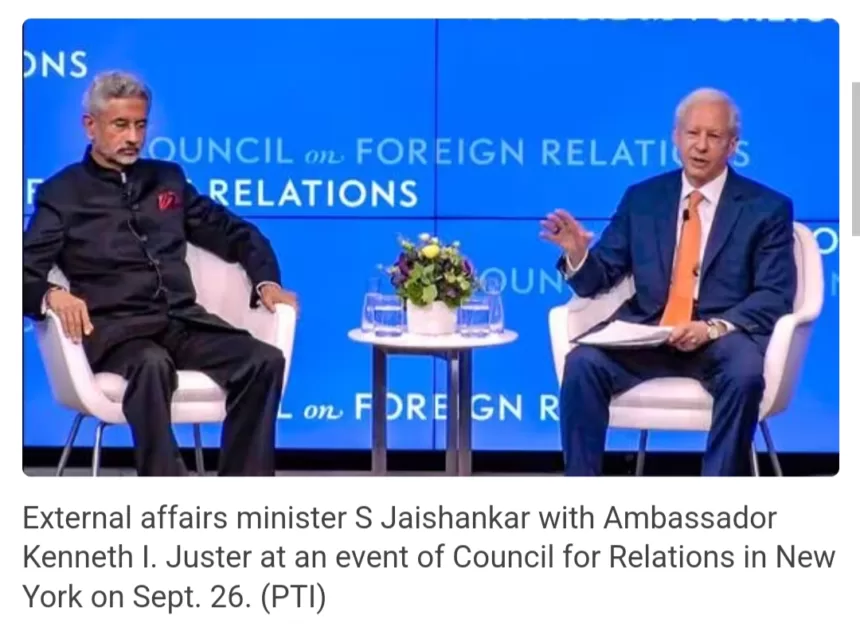In an address at the Council on Foreign Relations, External Affairs Minister S Jaishankar expressed India’s pragmatic approach to the escalating Chinese activity in the Indian Ocean, an area often referred to as the “string of pearls.” Jaishankar emphasized that India has valid reasons to prepare for a more substantial Chinese presence in this strategically vital region. This preparedness is in response to India’s perception of growing Chinese influence, particularly in the maritime domain.
Jaishankar drew a metaphorical comparison to pearls, suggesting that what appears benign on the surface may harbor a more nuanced reality. Acknowledging the concerns raised by a burgeoning Chinese naval presence in the Indian Ocean over the past two decades, Jaishankar pointed to a marked escalation in the size and scale of the Chinese navy.
This shift has led to greater visibility of Chinese naval deployments, exemplified by the construction of ports such as Gwadar in Pakistan and Hambantota in Sri Lanka. Jaishankar noted that in retrospect, previous governments might have underestimated the long-term implications of these developments.
The minister underscored India’s commitment to monitor these developments closely, particularly with regard to any potential security ramifications for the country. Given the diverse nature of these Chinese investments in various ports, India’s approach is rooted in prudent caution.
Furthermore, Jaishankar stressed that maritime concerns extend beyond the territorial interests of individual nations. Challenges like piracy, smuggling, and terrorism require international cooperation and the enforcement of maritime law. He warned that failing to address these concerns collectively could result in heightened risks.
Jaishankar’s address also highlighted the evolving dynamics of power in the Indian Ocean region. While the United States historically held a significant presence in this region, its influence has waned over the years. Consequently, gaps have emerged at a time when new technological advancements have empowered non-state actors.
Jaishankar emphasized that these challenges are best tackled through collaboration, highlighting the importance of the Quadrilateral Security Dialogue (Quad) involving India, the United States, Australia, and Japan. In a changing global landscape, the Quad provides a forum for these nations to collectively address shared maritime challenges and safeguard the global commons in the Indian Ocean.
As China’s presence continues to expand in the Indian Ocean, India’s vigilance and engagement with its international partners will play a pivotal role in maintaining regional stability and addressing emerging security concerns.
By PTI







